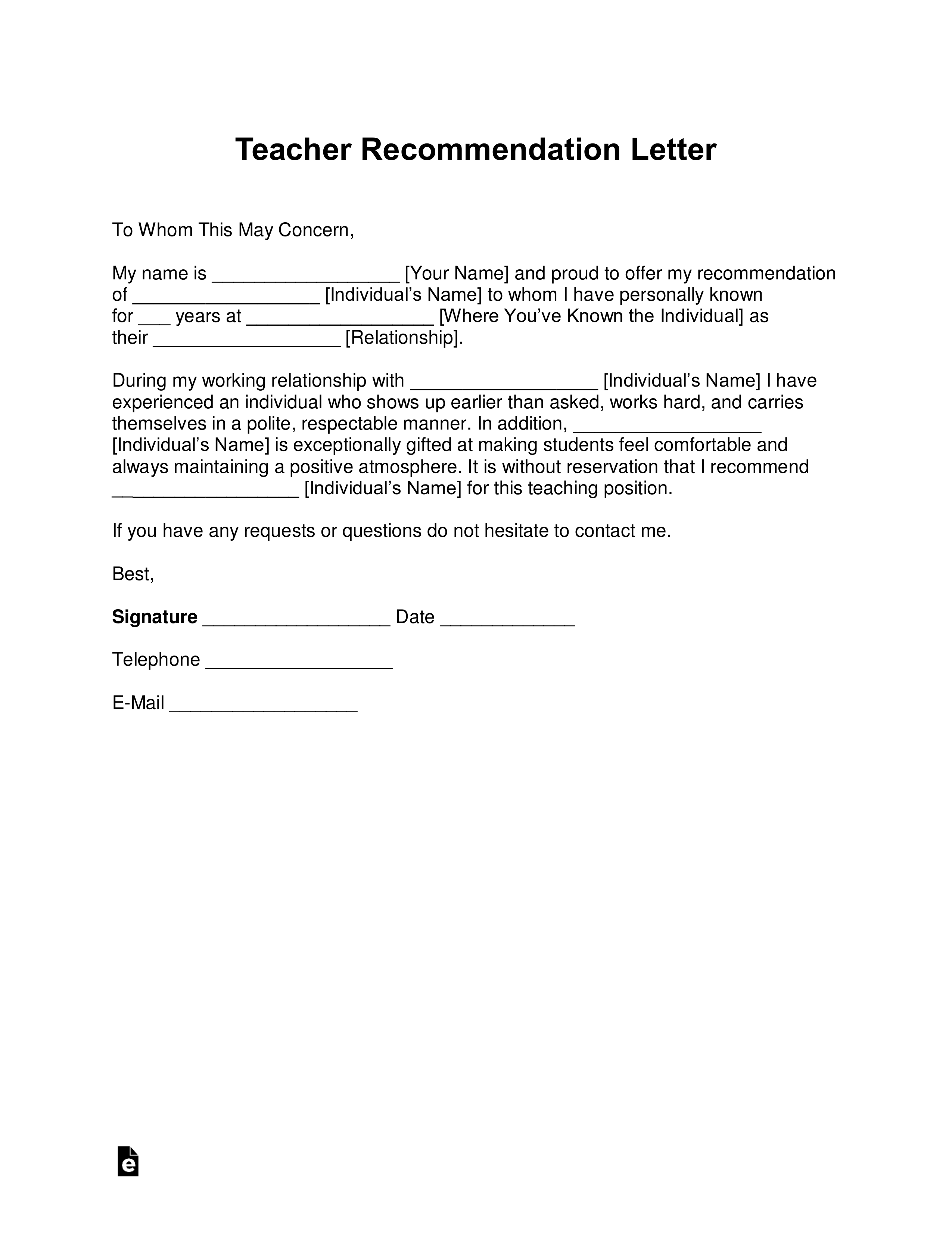The moment you see your child light up with enthusiasm, excited to share what they learned that day, you know you’ve found a special educator. Their passion inspires your child, and their dedication to their students is truly commendable. When the time comes for this teacher to pursue new opportunities, you might find yourself wanting to express your heartfelt gratitude. A reference letter allows you to do just that, offering a powerful testament to their skills and impact on your child’s life.

Image: no.pinterest.com
Writing a reference letter for a teacher is more than simply stating their qualifications. It’s about painting a vivid picture of their passion, dedication, and impact on your child’s growth. A heartfelt and well-written reference can be the key to unlocking their future potential, advocating for their talents, and recognizing their invaluable contribution to the educational community.
The Importance of a Strong Reference Letter
A Teacher’s Advocacy
In the competitive world of education, a strong reference letter can make all the difference. It acts as a powerful advocate for the teacher, presenting a compelling case for their skills, experience, and dedication. It’s not simply a formality, but an opportunity to highlight their unique qualities and showcase their true value.
Amplifying Their Achievements
Beyond outlining core competencies, a reference letter allows you to personalize the teacher’s story. You can share anecdotes demonstrating their creativity, problem-solving skills, and dedication to fostering a positive learning environment. These anecdotes bring their teaching philosophy to life, painting a comprehensive portrait of their impact on their students.

Image: learningmediacassandra.z21.web.core.windows.net
Crafting a Powerful Reference Letter
Understanding the Basics
Before diving into the writing process, understand the basic elements of a compelling reference letter. It should be concise, well-structured, and focused on the teacher’s strengths. Start by mentioning your relationship with the teacher and your child, followed by a brief overview of the teacher’s qualifications and experience.
Next, provide concrete examples of the teacher’s positive impact on your child. This could include specific instances where the teacher:
- Demonstrated exceptional teaching techniques
- Encouraged critical thinking and problem-solving
- Created a supportive and inclusive learning environment
- Showed commitment to your child’s individual learning needs
- Went above and beyond to support your child’s growth
Showcasing Your Child’s Growth
Use specific examples to illustrate the impact of the teacher’s work on your child. This could include how they improved their academic skills, increased their confidence, or developed a love for learning. Focus on the positive transformation your child has experienced under the teacher’s guidance and mentorship.
The Power of Anecdotes
Anecdotes are powerful tools for bringing a letter to life. They personalize the experience and offer tangible evidence of the teacher’s impact. Share a specific story that highlights their dedication, empathy, or creativity. This will leave a lasting impression on the reader and solidify the teacher’s reputation as an exceptional educator.
Tips for Writing a Memorable Reference Letter
Start with a Strong Introduction
Captivate the reader’s attention from the very start. Begin with a captivating introduction that highlights the teacher’s outstanding qualities and the positive impact they had on your child. Let the reader know immediately why you’re writing this letter and why they should pay close attention to what you have to say.
Focus on Specific Skills and Achievements
Avoid vague language and generic praise. Instead, provide concrete examples that demonstrate the teacher’s specific skills and achievements. This could include how they used innovative teaching methods, fostered a supportive classroom environment, or helped your child overcome academic challenges.
Highlight Your Child’s Growth
The reference letter is about highlighting the teacher’s impact on your child. Use the letter to demonstrate how the teacher has helped your child grow academically, socially, and emotionally. Share specific instances where the teacher’s dedication and commitment have made a real difference in your child’s life.
End with a Strong Call to Action
Close the letter with a clear call to action, recommending the teacher for the position. Express your confidence in their abilities and highlight the valuable asset they would be to any school or educational institution. Leave the reader with a positive and lasting impression of the teacher’s potential.
Frequently Asked Questions
Q: What information should I include in the reference letter?
A: The reference letter should include information about your child, their relationship with the teacher, the teacher’s qualifications and experience, specific examples of the teacher’s positive impact on your child, and a clear recommendation for the teacher’s future endeavors.
Q: How long should the reference letter be?
A: Aim for a concise letter that is no longer than one page. It should be focused and to the point, highlighting the most important aspects of the teacher’s strengths and accomplishments.
Q: What should I do if I don’t know the teacher very well?
A: If you don’t have a close relationship with the teacher, focus on the aspects of their teaching that you have observed directly. You can also include information about your child’s opinions and experiences in the classroom.
Q: Should I ask the teacher for their resume or qualifications?
A: It’s not necessary to ask for specific qualifications. You can focus on the positive aspects of their teaching that you have witnessed firsthand. However, if you do have access to their resume, it can provide valuable context for your letter.
Reference Letter For Teacher From Parent
Closing Thoughts
A well-crafted reference letter can be a powerful tool in a teacher’s career. As a parent, you have a unique perspective on their impact and can share invaluable insights into their skills, dedication, and commitment to student success. By taking the time to write a thoughtful and personalized reference, you can help shape the future of a dedicated and inspiring educator.
Are you interested in learning more about the impact of reference letters in the world of education? Share your thoughts and experiences in the comments below. Your insights and perspectives are valuable to the community!






